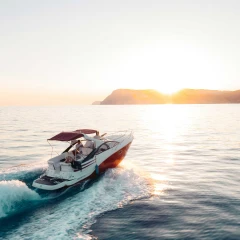













When the season winds down and it’s time to dock your boat for the winter, what you do before can make all the difference later. Poor storage can lead to costly damage, rejected insurance claims, or even higher premiums.
Here’s what to know about protecting your boat—and your coverage—during the off-season.
Most insurance policies require that your boat be stored in a “safe and secure” manner during non-use months. If damage happens due to improper storage—like burst hoses, rodent damage, or a collapsed canopy—you may be on the hook for repairs.
Even worse, some policies reduce or exclude coverage during lay-up periods unless specific conditions are met. If you live in a storm-prone area, prepping your boat for extreme weather is just as important as dry dock precautions.
A lay-up period is the time your insurer expects your boat to be out of commission—typically during fall and winter months. You may not be covered for incidents in the water during these times, but they can bring big savings.
Check for:
👉 Pro tip: Let your insurer know if you’re storing your boat in a different way this year—especially if you’re moving from home storage to a marina or paid facility.
Here are the most common options:
This goes beyond draining fuel. Don’t skip:
You’re not just storing the boat—you’re protecting it from long-term wear. For even more seasonal prep tips, revisit our guide on off-season boat storage best practices.
Take time-stamped photos of your boat before storage—inside, outside, and around the engine.
If you do have to file a claim, visual evidence helps prove damage wasn’t pre-existing or due to neglect.
Storage requirements vary by insurer and region. Some may want:
A quick call can help avoid denied claims later. You can also review what’s typically included in yacht and boat insurance to understand what protection might apply during storage.
Keeping your boat protected in the off-season doesn’t just help avoid damage—it helps you stay claim-free. And staying claim-free is one of the best ways to earn lower premiums and loyalty discounts from insurers. Practicing safe boating habits during the season also plays a key role in long-term insurance savings.
